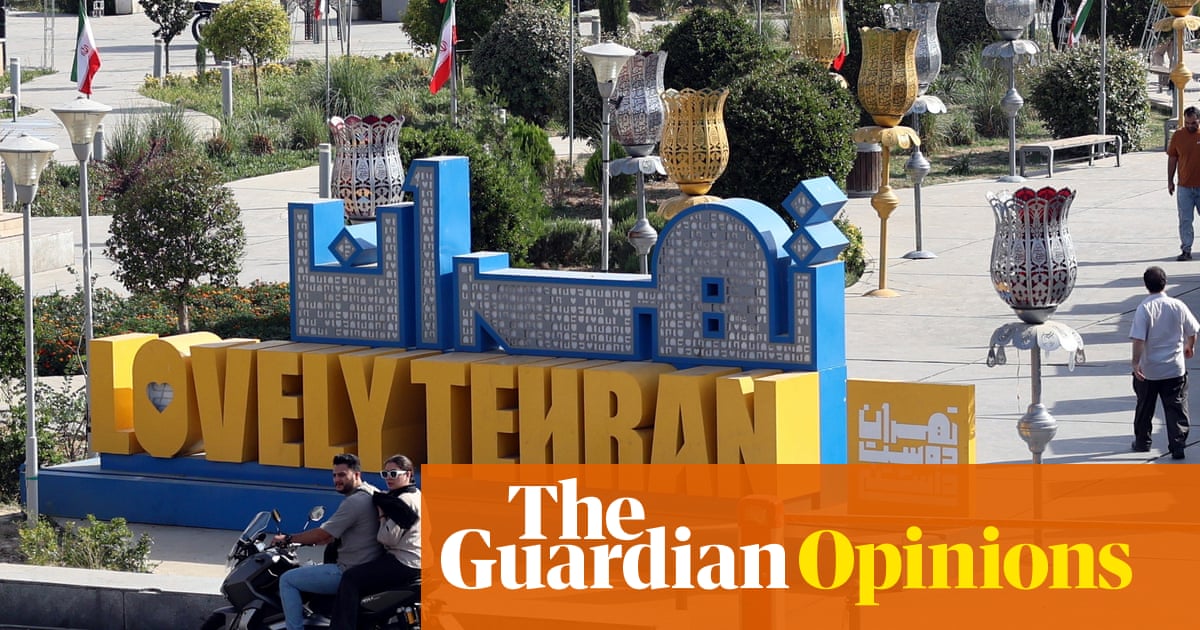Itravelled toIranfrom Australia to visit my ageing parents and reconnect with my roots. What was meant to be a short family visit took a dramatic turn with the outbreak of a sudden and unprovoked war imposed on Iran. I was in Kurdistan on a short sightseeing trip when the first Israeli attack occurred. The news struck like a shock wave, followed by a heavy, ominous silence – the kind that signals something far worse may be unfolding. With airspace closed and internet access severely restricted, I found myself all but stranded.
Yesterday, I crossed into Turkey through the Sero-Esendere border in West Azerbaijan province in Iran – a less crowded route which I chose after a painful but deliberate decision. I am now preparing to return to Australia to be reunited with my wife and children.
The past few days have been some of the most intense and heartbreaking of my life. Saying goodbye to my elderly parents and siblings, not knowing when – or if – I’ll see them again, was a kind of pain I can’t fully describe. I am profoundly concerned about the growing risk of a wider war that could engulf not just the region, but potentially the world. Above all, I am deeply worried for the future of Iran – one of the greatest countries in the world, rich in culture, history, and resilience.
As an Australian-Iranian citizen I feel caught between two countries, two identities and two worldviews. It is painfully clear that escalation serves no one. Security cannot be achieved through airstrikes; peace cannot be imposed through fear. The path forward lies in dialogue, mutual respect, and the courage to look beyond past grievances.
Experiencing this conflict first-hand has also revealed the quiet strengthof a society under attack– something that rarely makes it into headlines. While international actors debate policy and power, ordinary Iranians navigate each day with remarkable resilience.Shopkeepers reopen their stores, families gather to support one another, and neighbours offer silent gestures of solidarity. Beneath the fear lies a powerful current of dignity – a determination to endure, not out of defiance, but out of necessity and shared humanity.
One of the most provocative escalations came with theUnited States’ bombardment of Iran’s nuclear facilities, ordered by Donald Trump. Seen widely as a violation of international law, the strike may paradoxically serve as a turning point.
In Australia, Peter Dutton’s electoral loss was in part due to his proposal for peaceful nuclear energy, which alarmed many voters. Yet Iranians have never had that choice. The pursuit of nuclear technology – peaceful or otherwise – has brought more threat than opportunity. The real question now is not what can be gained, but what might be lost.
At this stage, it no longer matters whether Iran joins the so-called nuclear club. What matters is saving more lives. Will we keep fuelling a war that has lost its core justification? The recent escalation also exposed deeper vulnerabilities. Israel, long reliant on its Iron Dome, found its population confined to bunkers as flaws in the system were revealed. Even the most advanced defence technology cannot promise safety in prolonged conflict.
Within Iran, there are different views about missile defence spending, with some seeing it as a point of protection and pride. Yet, as many quietly acknowledge, they can do little to protect against US B-2 bombers.
For those of us stranded by this conflict, our only hope is that the leaders of all nations come to understand what ordinary people have always known: peace is the only way forward.
Mohammad Azimi is an Australian resident with family in Iran. This article reflects a personal account and is not intended as a political statement. He writes not as an analyst or activist, but as a citizen concerned for the safety of ordinary people on all sides
